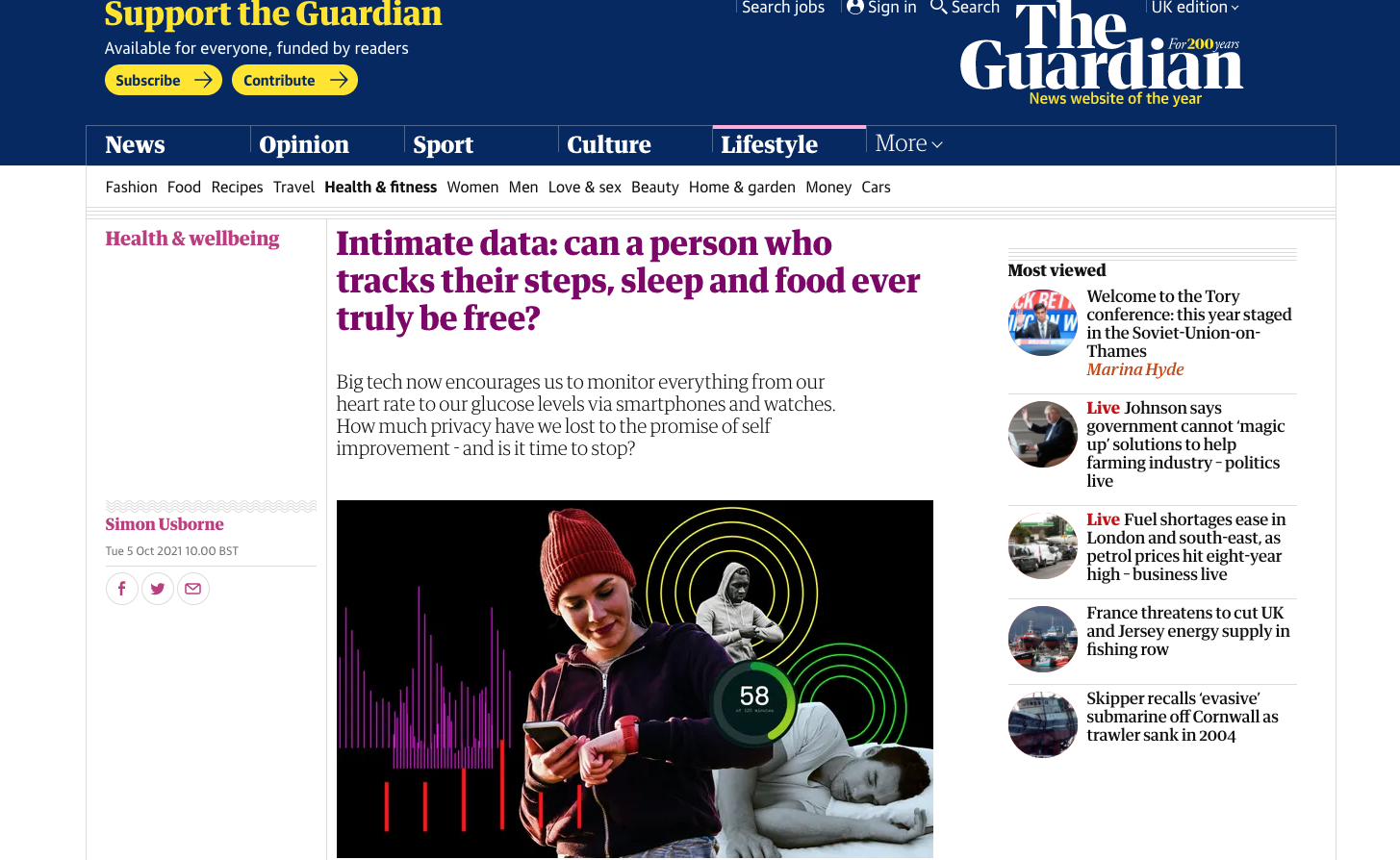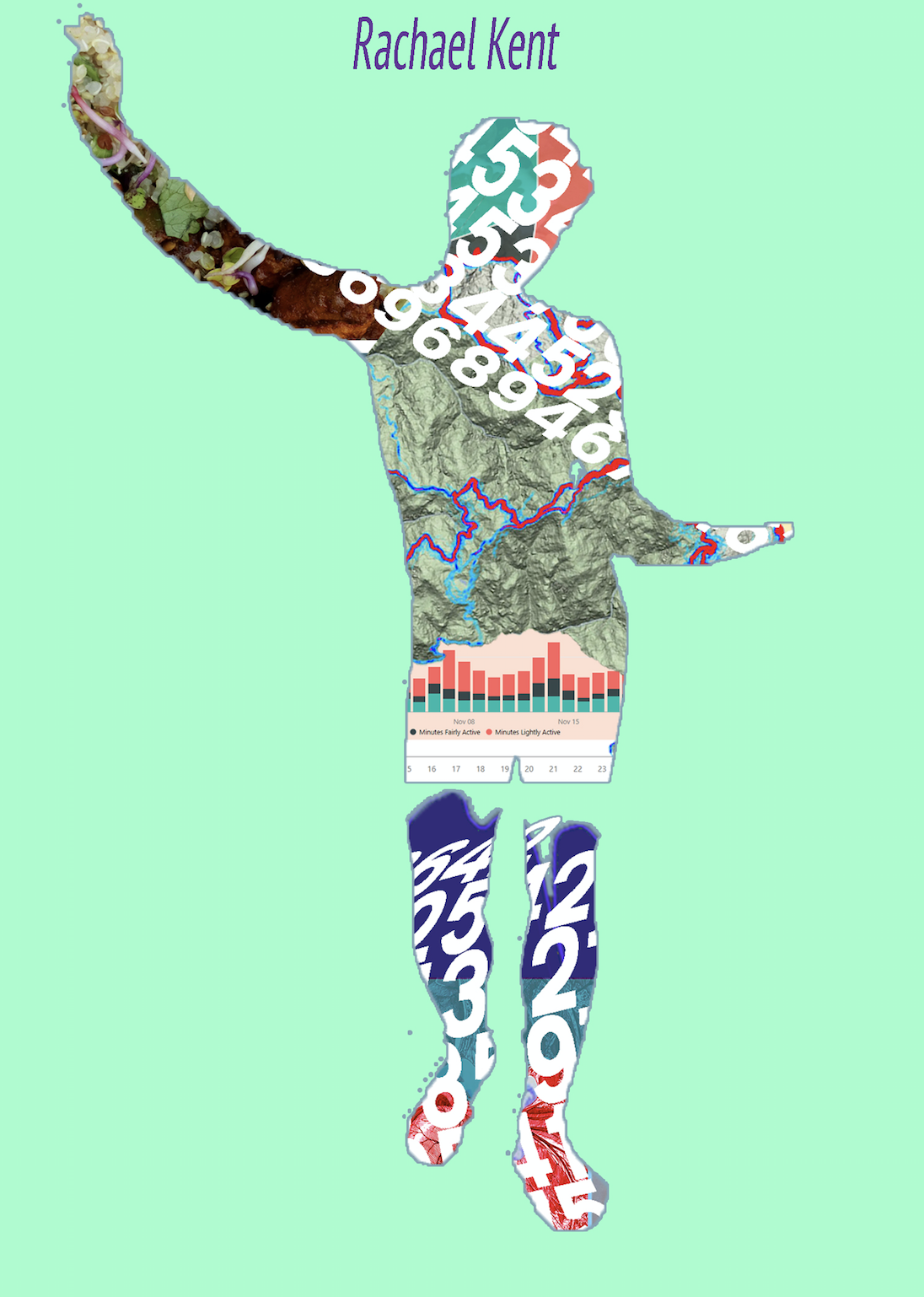Btihaj Ajana has been interviewed in The Guardian about a piece on “Intimate data: can a person who tracks their steps, sleep and food ever truly be free?”. Here are some quotes from the piece: Such quandaries will only become more common and complex, says Btihaj Ajana, a reader in media and digital culture at King’s …
Continue reading ““You don’t own that data” – Btihaj Ajana on self-tracking in the Guardian”


